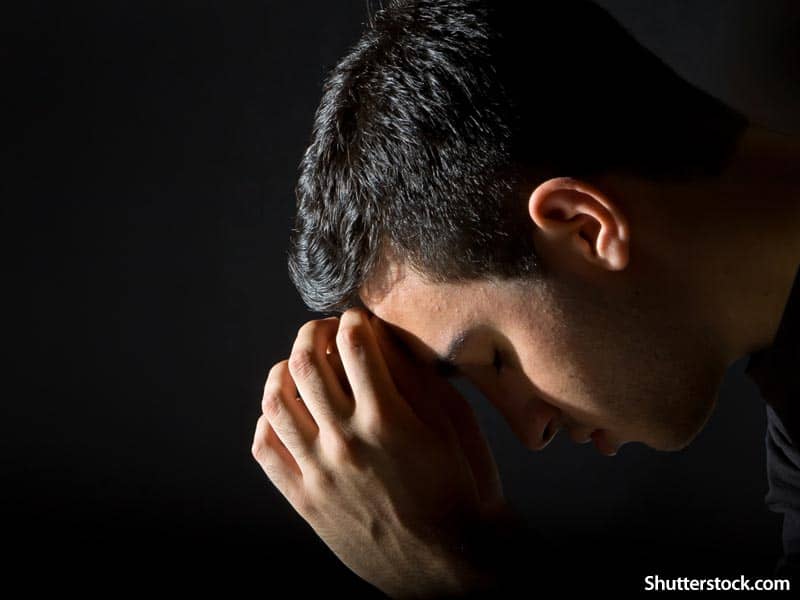Moosa has written that traditional theology cannot provide Muslims with solutions because the old thinking creates a "morally repugnant" battleground between 'good' Muslims and 'bad' outsiders. Moosa believes Muslims must live in the modern world, in all its complexity. And that, he says, means painful discussions must happen before Muslims are comfortable with themselves. At the same time, he is also critical of America's foreign policy, and of its moral and political culture, saying that the United States is in dire need of self-critique.
Beliefnet's religion producer, Deborah Caldwell, talked with Moosa about this year's Hajj.
As we embark on the Hajj season in this time of war, what are Muslims thinking and feeling?
Well, first let's look at what Hajj means. Hajj symbolizes the fulfillment of pilgrimage, journey, struggle, and honoring the symbols of God. The pilgrimage is a way to honor those divine symbols. The Hajj culminates in sacrifice, according to the scripture. Abraham agreed to oblige God's will by agreeing to sacrifice his son, Ishmael. That represents his total devotion to God's will. And the Hajj represents the big test, the big trial in one's life. Abraham stands for one who has been tested over and over, so therefore he's known in the tradition as a friend of God.
So pilgrimage in Islam is when friendship reaches a frenzy. People cry, they become emotional. Many of these people have suffered a loss of family, a loss of children, a loss of power. People come from countries where they've been hungry, where they've suffered. It's a highly emotional ritual, loaded with different layers. And you have three weeks of intense rituals.
It's a very, very bewildering time.
What is the goal of Hajj, and how will it relate to what's happening in the world now?
It does mean to reach a goal, to reach an objective. That objective is a reconciliation with yourself and your creator. It's a moment of atoning. The pilgrim goes to atone for the past and to begin a new covenant with God.
For each pilgrim it will be different. Hajj becomes a very personal moment. Some people might be caught up in that one moment when they were rude to their parents. That will be the point that will make them humble. Or they will think about being saved from a tragedy.
But there will be the global concern. One thing they do become aware of is that Muslims feel in different parts of the world that they are under attack. And there will be nothing in the pilgrimage that will give them a solution. There will be no speeches will give directives.
Yet they will try to put that aside to atone to God?
The atonement will be very, very personal stuff. It's about how one has conducted oneself in the past. People will be making commitments to be more observant believers.
So the general pessimistic sense in the Muslim world will pervade Mecca, even as people try to keep it a personal spiritual journey?
Yes, because two groups seem to have "the answer" right now among Muslims: the bin Ladens and the people in the White House who are going to bomb everyone into submission. Hopefully, for the sake of the world, there are people who will not take those options.
In the 1980s, the Iranians tried to politicize the pilgrimage by holding demonstrations. They did it for a number of years, but then the Saudi government cracked down, and after that it stopped. These days the pilgrims are having random security done on them. And I worry that for people who come from remote Indian villages where they have never seen such things, for them this will seem like an intrusion, and something Western. And I worry that thousands of people will be further politicized as a result [against the West].
And in America, Muslims are at a stage of feeling despondency and pessimism. Depending on world events, that will be like a pendulum that switches. What is really required and will become necessary will be to do a lot of very, very hard questioning. The key issue will be questions of global social justice, in America in particular. The prophetic voice of religion in this country has not been heard.
We are caught in a cycle of patriotism, but when it runs its course I'm looking forward to the prophetic voice coming to the fore. There is a massive inequalibrium in global power. The poor are so desperate they'll do anything to fulfill their aspirations.
But during the Hajj, despite it all, I think that basically people will be looking for courage in the pilgrimage, and ways to strengthen themselves.

